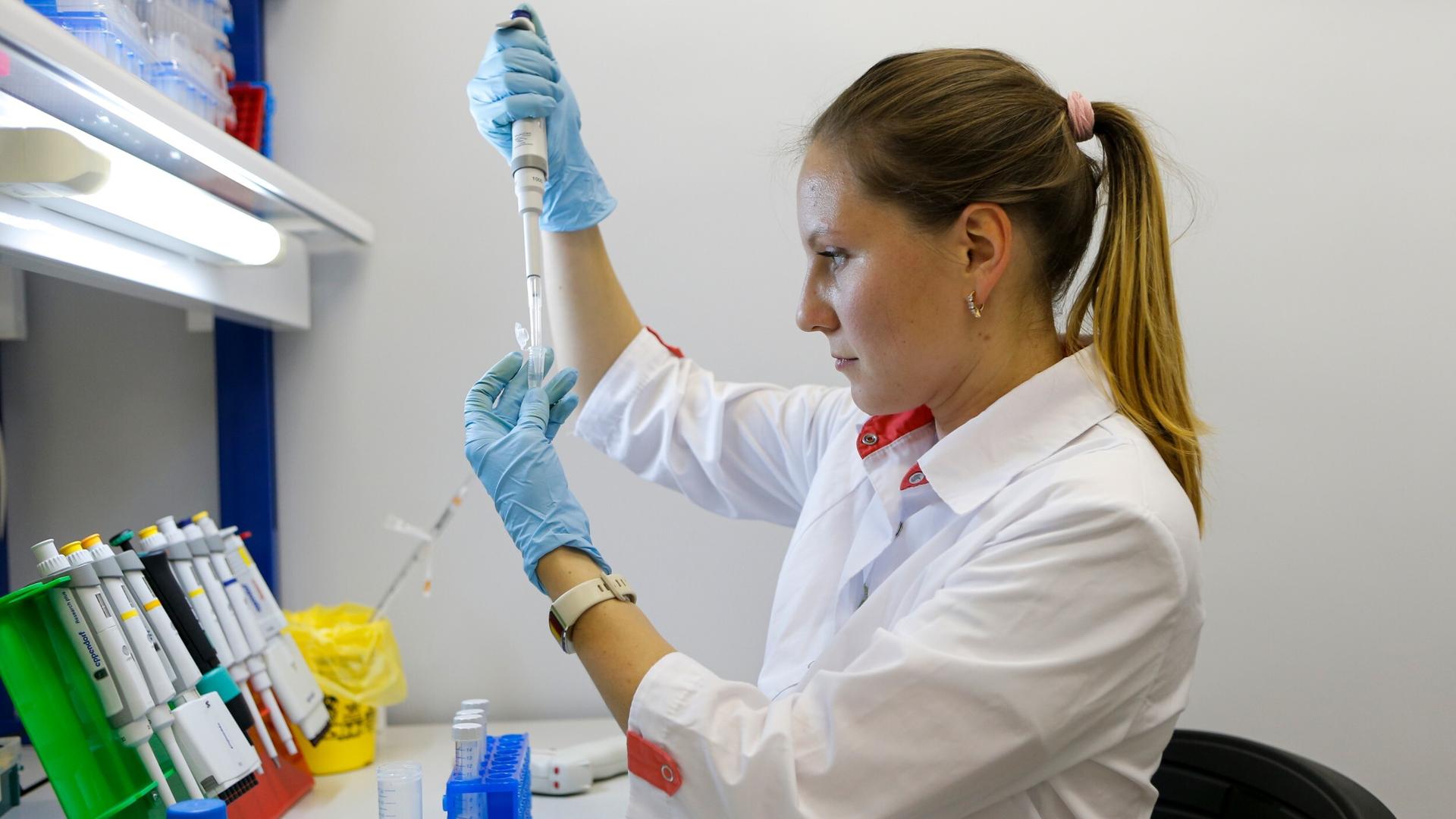Russia is now the first country in the world to grant approval for a vaccine against COVID-19.
There is a big catch, though. Russia’s vaccine has not passed the crucial Phase 3 testing stage. That’s when thousands of volunteers are inoculated.
Related: Moderna, NIH coronavirus vaccine study underway
So, many scientists wonder whether this one is safe and effective. Still, President Vladimir Putin is calling the vaccine “Sputnik V” — a reference to Russia’s surprise launch of the world’s first satellite in 1957.
Related: UK coronavirus vaccine prompts immune response in early test
For more on the controversy behind this vaccine, The World Host Marco Werman spoke with Gary Kobinger. He directs the Infectious Disease Research Center at the University of Laval in Quebec City and has worked on a coronavirus vaccine there.
Marco Werman: Russia has this agreement to produce 500 million doses of this new vaccine and says it has requests for a billion doses from 20 countries. Is this good news?
Gary Kobinger: It would be good news if we would have a bit more data on their safety and efficacy of that vaccine. And it depends how they roll it out. But if they roll it out at the population level with hundreds of thousands of people vaccinated per week, which they could do, I would not want to be the person signing off on this and being responsible for this, honestly. Because I think it may all go well and I wish them the best, trust me. But I would be very nervous about seeing severe side effects, seeing increasing severity of disease and acquisition, increased acquisition. I would not be comfortable. And it’s it’s a huge risk.
So, Russia’s skipping this Phase 3 — large-scale safety trials. Those take months. Why is skipping that phase — even in the midst of a global emergency — such a serious omission in the scientific process?
It’s a tough decision. I could see this being a bit more debated then, and more likely to happen if we would have a pathogen that would have a case fatality rate — so killing 50% of the people, for example — which is not the case right now. It’s still not Ebola. It’s still not a very highly pathogenic virus.
Even some Russian scientists have warned of the dangers of the Sputnik V, suggesting even that the wrong vaccine could increase the severity of COVID-19. Do you also have those concerns?
It definitely is a possibility. And when you get the population level, it means also that you will vaccinate people that have all sorts of genetic background, potentially, whose morbidity factors that are unknown, maybe of a medical condition that are still unknown. And these can interact with [any] vaccine in a way that it could make acquisition and severity of the disease more aggressive and it could increase the side effect. This is why Phase 3 [trials] are so important. Everything before, Phase 1 and Phase 2, you select the people. You look to make sure they don’t have co-morbidity factors. So this is why doing this right now with a pathogen like SARS-CoV-2 is a high risk. And when you are developing a vaccine and you’re putting vaccine out, you have a responsibility to the rest of the world because again, if you have a vaccine that brings severe side effect, if you have a vaccine that increases acquisition, increases disease severity, you undermine everybody else that may have a better candidate as well. You know, people are afraid of [a] vaccine, almost naturally. And it will be, I think, a shockwave not only to the COVID vaccination but to every vaccine-preventable disease, which is, you know, millions of people a year that are saved because of vaccination.
The World is an independent newsroom. We’re not funded by billionaires; instead, we rely on readers and listeners like you. As a listener, you’re a crucial part of our team and our global community. Your support is vital to running our nonprofit newsroom, and we can’t do this work without you. Will you support The World with a gift today? Donations made between now and Dec. 31 will be matched 1:1. Thanks for investing in our work!
